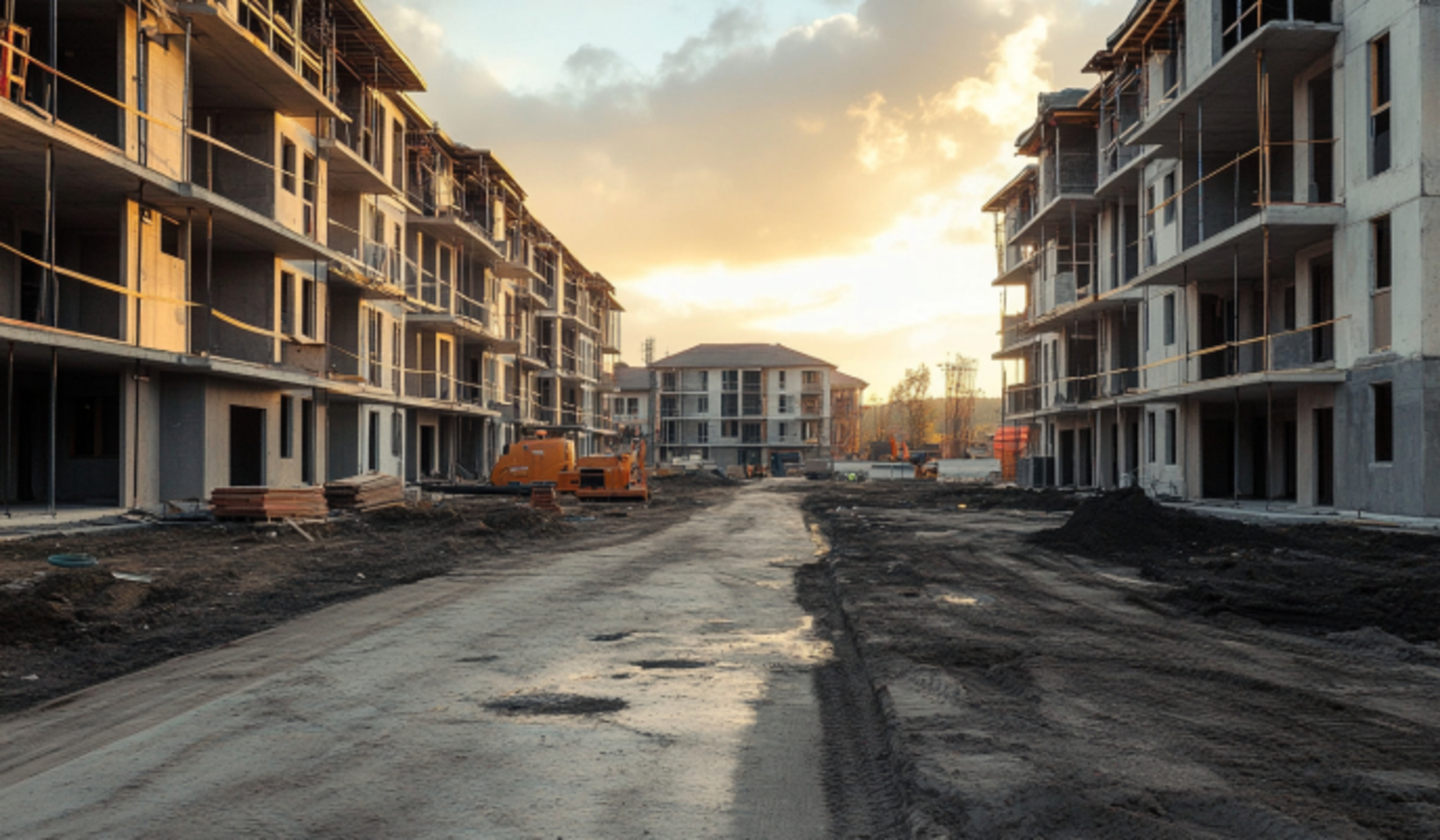- Off-plan property investment means buying into a property before it’s completed.
- In 2023, off-plan sales accounted for 30-40% of real estate transactions in many booming markets worldwide.
- Understanding key factors like the developer’s track record, the property location, and market trends is crucial.
When you hear ‘off-plan property investment,’ think of faith and good strategy, because that’s exactly what this arrangement thrives on! Off-plan property investment means buying into a property before it’s completed. Essentially, a developer presents their vision, a blueprint or a model of the property, and you invest in it before it’s built.
This kind of investment is a growing trend. In 2023, off-plan sales accounted for 30-40% of real estate transactions in many booming markets worldwide. Why the buzz? Buyers often lock in properties at prices 10-20% lower than market value, with potential for significant appreciation by the time construction is complete.
But it’s not all roses. Understanding key factors like the developer’s track record, the property location, and market trends is crucial. The rewards can be lucrative, but the risks, such as project delays or market downturns, are real.
In this article, we’ll explore the benefits, risks, and smart tips to help you navigate off-plan investments with confidence.
READ ALSO: Buying Property Off Plan: Is it Worth It? Pros & Cons
Table of Contents
Why Invest in Off-Plan Properties in Kenya?
Off-plan property investment has been gaining traction in Kenya’s real estate market. Here’s why it’s a promising venture:
Lower Entry Costs:
Off-plan properties in Kenya are often priced 15-25% below market value, giving buyers the advantage of securing properties at discounted rates before completion.
High Demand in Urban Areas:
With urbanisation accelerating, cities like Nairobi and Mombasa are experiencing a 4.4% annual growth rate in housing demand. The shortage of affordable housing continues to make off-plan developments attractive for buyers looking to enter the market early.
Flexible Payment Plans:
In Kenya, developers typically offer flexible instalment options, with down payments as low as 10-20% of the property’s value, followed by staggered payments during construction.
Rental Income Potential:
The rental market in urban Kenya remains strong. For instance, apartments in Nairobi’s suburbs, such as Kilimani and Westlands, have seen rental yields of 5-7% annually, making off-plan investments attractive to buy-to-let investors.
Risks to Consider in Kenya
While the benefits are appealing, there are risks specific to Kenya’s real estate market that you should be aware of:
Project Delays and Defaults:
A report by Cytonn Investments in 2022 indicated that 20-30% of off-plan developments in Kenya faced significant delays, primarily due to financing challenges or regulatory hurdles. As such, it is important to ensure that you have done your research well before fully committing.
Developer Credibility:
Unfortunately, cases of rogue developers have been on the rise. According to the Kenya Private Developers Association, approximately 1 in 5 buyers of off-plan properties have faced issues such as incomplete projects or deviations from the agreed specifications. This of course is a big loss to a lot of investors.
Economic Fluctuations:
Unforeseen events can sometimes lead to economic fluctuations and this can directly impact the real estate sector. In 2023, the Kenyan real estate market experienced fluctuating interest rates and inflation, recorded at 9.2%. This significantly affected property prices and construction costs, making the market more unpredictable for investors. Before making an off-plan property investment, it is important to keenly study the market .
Legal Complications:
Land ownership disputes are a common challenge in Kenya, and due diligence on property titles is crucial to avoid legal battles.
READ ALSO: Why Are Kenyans Shying Away from Buying Off-Plan Houses?
Smart Tips for Off-Plan Property Investment in Kenya
To ensure a safe and profitable investment, here are some tips:
Vet the Developer Thoroughly:
Research the developer’s track record. Companies like Cytonn and Optiven have completed successful off-plan projects, making them more reliable. Always visit their past developments and talk to previous buyers.
Choose the Right Location:
Focus on areas with high growth potential, such as Ruaka, Syokimau, Athi River, or Ruiru. These locations benefit from proximity to Nairobi and ongoing infrastructure projects like the Nairobi Expressway and commuter rail expansion.
Understand the Payment Terms:
Negotiate payment plans that align with your financial capacity. Many Kenyan developers offer flexible schedules, but ensure you have clarity on penalties for missed payments.
Verify Legal Documentation:
Check the land ownership documents and confirm that the project has the necessary approvals from the National Construction Authority (NCA) and county government.
Monitor Market Trends:
Keep an eye on Kenya’s real estate reports. For example, housing demand in Nairobi increased by 14% in 2023, according to HassConsult, signalling strong market activity in urban areas.
READ ALSO: Unlock the Secrets -10 Must-Know Tips for Off-Plan Buyers!
Conclusion
Off-plan property investment in Kenya offers exciting opportunities with lower costs, flexible payment plans, and the potential for strong returns in a growing market. However, it’s not without risks like project delays, unreliable developers, and market volatility.
Success lies in careful planning; vet developers, choose high-growth locations, and stay informed about market trends. With Kenya’s real estate sector expanding rapidly, off-plan investments can be a smart move if approached with diligence and strategy. Take the leap, but make it an informed one!



